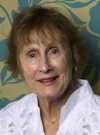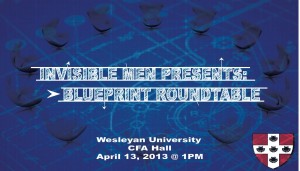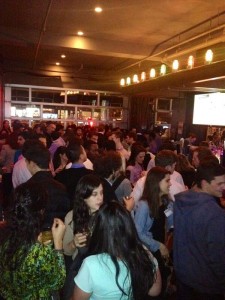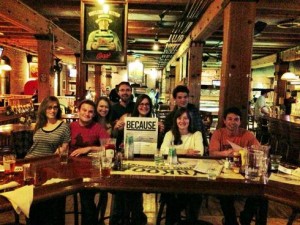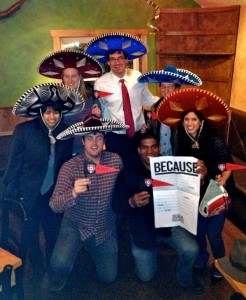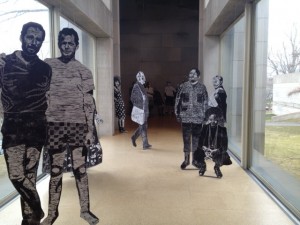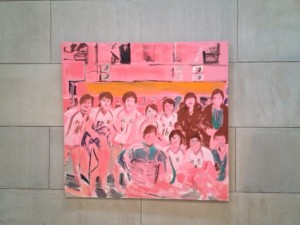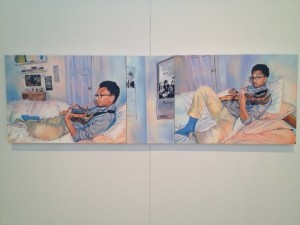I am just on my way back from Pennsylvania State University, where I gave a lecture on liberal education as the kick-off to a conference on the University and Society. My host was Matt Jordan a former graduate student of mine who is now an associate professor in Communications and an active participant in the Social Thought Program. As I was preparing to return home to Middletown, I posted the following on the HuffingtonPost.
As we marked the 10th anniversary of the Iraq war, over the last month many stories emphasized the false pretenses under which we entered the conflict, the surprising rapidity with which American armed forces deposed Saddam Hussein’s regime, and our extraordinary lack of preparation for the ensuing conflicts among Iraqi groups. Commentators used the idea of “groupthink” to describe the enormous enthusiasm for war in the spring of 2003 and how many in the political class went along with the invasion.
We must be wary of attributing too much power to “groupthink” for what came to seem like an inevitable United States attack on Iraq. After all, there is a good case to be made that many knew that they were simply disseminating false information in order to create a quasi-legal basis for war. These folks weren’t swept along by unconscious conformity with a group. They were lying to the American people and the rest of the world about the threat posed by Saddam’s regime.
We must also be wary of the retrospective notion that there was a universal desire for military action 10 years ago. From January through the summer of 2003, many thousands of people across the country participated in organized protests against the rush to war, and more than a million protestors hit the streets in Europe. On February 19 President Bush was quoted as saying, in his inimitable style: “Size of protest — it’s like deciding, well, I’m going to decide policy based upon a focus group. … The role of a leader is to decide policy based upon the security, in this case, the security of the people.” No focus groups or groupthink for him! We remember that for this president, thinking meant listening to your gut. And he wasn’t about to hear any outsiders’ perspectives that might get in the way of him hearing himself.
But soon after the war began, it became clear that groupthink had in fact played some role in the government’s (and the press’) eagerness for military conflict. Although incompetence and dishonesty were part of these war preparations, the quasi-automatic process of “groupthink” unconsciously swept many along into conformity with “expert” opinion.
William Safire discussed this in his “On Language” column in the summer of 2004, pointing back to William H. Whyte Jr’s coinage of the term “groupthink” in a 1952 Fortune magazine article. Whyte, the author of The Organization Man, bemoaned the “rationalized conformity” that had become a “national philosophy.” He was pointing to orthodoxy that is justified through conventions deemed efficient, right and good. Twenty years later, Irving Janis published Victims of Groupthink, in which he explored how cohesive groups create pressures so that “the members’ striving for unanimity override their motivation to realistically appraise alternative courses of action.”
You can see the vicious circle: the more cohesion, the more pressure toward “rationalized conformity.” The more conformity, the more cohesion. Outsiders, and ideas from the outside, are not welcome. Everybody hears the same one-note chorus.
Meanwhile, in the same year in which the Iraq war began, the Supreme Court upheld affirmative action policies within a holistic admissions process. In 2003 the court recognized that maintaining diverse student bodies served an educational interest. Sometime in the next several weeks the court will issue its decision on Fisher v. University of Texas, and then on Michigan’s Schuette v. Coalition to Defend Affirmative Action, the latest challenges to 2003 ruling. Many are expecting judgments that sharply reduce a university’s ability to take race into account as it tries to create a diverse campus culture.
Educators are rightly concerned that this will lead to more homogeneous student bodies. We are concerned not because of a shared political commitment, but because we know that homogeneity kills creativity. We know that diversity is a powerful hedge against the “rationalized conformity” of groupthink.
We have learned that when conformity is rationalized it becomes a powerful enemy of democracy. It is also a powerful enemy of learning. Inquiry, especially at the highest levels, depends on challenges to convention, as American writers on education have known from Jefferson to Emerson, from du Bois to Addams, from Dewey to Ravitch. Since the late 1960s many universities steered away from cultivated homogeneity and toward creating campus communities in which people can learn from their differences while still finding their commonalities. This means working in teams with folks from different backgrounds while developing shared loyalty to the school’s mission.
Alas, American universities have at times produced their own bizarre forms of conformity, even under the guise of celebrating difference. Partisan visions of social change are taken by some to have the status of established social science, and campus clubbiness can mean enforced homogeneity of political opinion. A colleague of mine was shocked when I raised this point with him about the leftist assumptions of many college classes. What did I mean, he asked, citing several schools offering classes that explored an impressive variety of radical movements.
As educators, we must fight conformity by subjecting it to scrutiny from a variety of perspectives. Without the push to explore alternative possibilities, we are more likely to miss potential opportunities, even rush headlong into catastrophes. Diversity of background, of values and of methods are all assets in developing iterative cross-pollination — ongoing inquiry that productively connects things that had not previously been brought together. Of course, not all combinations will be productive — some creative experiments fail. But without divergent thinking we will be more likely to fall into patterns of rationalized conformity that undermine research and teaching.
Conformity, whether rationalized or simply imposed, undermines our government, our press, and our educational systems. We have had to learn some hard lessons about this over the last 10 years. Surely one of them is that we must defend diversity as a tool for innovation and for responsible decision-making.



